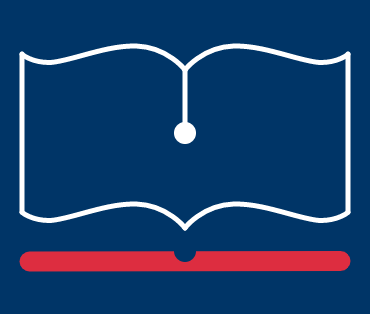
12 March 2026
This workshop is designed to equip academic teachers with the tools and strategies needed to create cohesive and effective learning experiences. It begins with an introduction to the fundamental concepts of purposeful teaching and learning design, emphasizing the importance of clear, aligned learning outcomes. The workshop will then delve into the integration of these outcomes with teaching activities and assessment methods, ensuring that each element reinforces and supports the others. Through a combination of theoretical insights and practical examples, the skills needed to create an engaging, student-centered learning experience that promotes deeper understanding and long-term retention will be developed.

17 March 2026 – 16 March 2026
Ph.D. CANDIDATES
Dobrý den! Are you a Ph.D. student wanting to learn the basics of the Czech language? Join our online language courses for beginners! This course will focus on introduction, shopping, eating and more.

18 March 2026 – 19 March 2026
STUDENTS & ALUMNI
Studying at a university is a good start. The next step is to turn your knowledge into practice and build your career. Join our great event, Career Day CU, and choose from a variety of lectures and other engaging activities! The career experts are here to help you.

18 March 2026
Ph.D. CANDIDATES
The Career Day at CU offers an exceptional opportunity to meet MSCA (Horizon Europe), and 4EU+ coordinators. Join the event and choose your time to discuss your grant intentions individually.

18 March 2026
Ph.D. + STUDENTS + ALUMNI
Research careers often include leadership roles (e.g. becoming a supervisor or a science team leader, and more). Join our Career Day at CU seminar to learn what effective leadership requires.

18 March 2026
Ph.D. + STUDENTS + ALUMNI
PhD life is gone, and one big question remains. What to do next? Should I build my future on academia or try another adventure in a company? Learn more at the Career Day at CU!

16 April 2026
Discover how feedback in peer observation can become a powerful driver of professional learning when it is grounded in trust and framed as a collaborative, non-judgmental practice. This 2.5-hour online workshop focuses on developing effective feedback skills within peer observation, emphasizing how trust, clear goals, and shared guidelines support meaningful and constructive feedback conversations.
The workshop introduces feedback as a central element of formative peer observation and as a key practice for professional growth. Participants will explore how the quality of feedback is shaped by the relational context in which it is offered, and why trust is a prerequisite for open, reflective dialogue about teaching. Building on this foundation, the workshop addresses how to define clear observation goals that guide what feedback focuses on, and how observation guidelines can be used to collect relevant evidence that supports feedback grounded in what was observed rather than in personal judgments. Particular attention is given to distinguishing evaluative from developmental feedback and to practicing feedback that is descriptive, evidence-informed, and oriented toward reflection and learning. Through theoretical input and guided activities adapted to the online format, participants will engage with examples of feedback conversations in peer observation.

21 April 2026 – 21 May 2026
Ph.D. CANDIDATES
Ahoj, jmenuji se…. If you are a Ph.D. student who has finished Survival Czech: Language Course for Beginners, join our second following up webinar. This course will focus on apologies, time expressions, or daily routine.

19 May 2026
Discover how the design of assessment shapes students’ collaboration, and learning in group activities. This 2.5-hour online workshop focuses on how to assess group work in ways that are fair, transparent, and aligned with learning objectives, while reducing common risks such as unequal participation, conflict, and student (and teacher) frustration.
The workshop starts from the premise that assessment is not a neutral element of group work, but a key factor that defines how students approach collaboration. Participants will explore the main challenges of assessing group activities, including the distinction between assessing group products and group processes, the visibility of individual contributions, and issues of fairness and accountability. Building on these foundations, the workshop addresses key design decisions in group assessment: what to assess, which criteria to use, who should be involved in the assessment process, and how group performance can be translated into individual grades. Particular attention is given to the use of grading rubrics and to the importance of clearly communicating assessment criteria and procedures to students.

26 May 2026 – 25 June 2026
Ph.D. CANDIDATES
Učím se česky. If you are a Ph.D. student who has finished the first two courses Survival Czech, or you already have basic knowledge of the Czech language wanting to develop, join our second following up webinar. This course will focus on making plans, health, or transportation.
Charles University
Rectorate
Student Affairs Department
Ovocný trh 5
116 36 Prague 1
Czech Republic
Identifikátor datové schránky: piyj9b4
IČO: 00216208
DIČ: CZ00216208